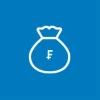There are many reasons why you may eventually want to close your existing bank account or even drop your current bank altogether in favor of a different bank. Hikes in fees, negative changes to terms and conditions or the availability of accounts which pay higher interest or have lower costs are the most common motives.
Some banks change their fee schedules fairly regularly which means that the costs of making certain transactions may increase or cheaper options may become available. Comparing the fees and interest rates charged by your bank with those of other banks on a regular basis can help you stay on top of changes and get the best deal.
Closing a bank account or ending a banking relationship is relatively simple. Take time to consider these points before closing your bank account:
- Consider phoning and asking your bank which specific steps must be taken or researching this on their website before taking the time to visit a branch office. Some banks require you to send notice by mail, while at many banks you can simply sign an account-closure form at a branch office.
- Make sure to close your account before the next fee period begins. If your bank charges its fees per quarter, cancelling your account before the next quarter starts helps you avoid paying for services which you will not use.
- You may only be able to cancel your account after all direct debit orders and standing orders have been terminated. The bank will normally inform you about outstanding recurring transactions and help you to cancel these.
- Unless you want to cash out your account, make sure that you have opened the new account before cancelling the old one so that you can transfer your assets directly. If you have recurring payments which you must continue to make, make sure to set up direct debits or standing orders on your new account in place of the cancelled recurring transactions on your old account.
- You should also take time to list all contacts which have your old bank account details and provide them with your new bank account details. Your employers, insurance providers and social security office should be the first to be notified. Other possible contacts which may require your bank account details in order to send you money include your pension fund (if you are a pensioner), securities brokers (online brokers, for example), customers (if you engage in any kind of business or income-generating hobbies) and family members. If you have memberships, subscriptions or online accounts from which you could possibly receive rebates or payments, make sure to update your bank details on these as well. If you are waiting on pending incoming payments or if you have outgoing payments which have not yet been processed, consider waiting until after all payments have been received before you change accounts in order to avoid complications.
- Some private accounts and most savings accounts have caps on the amounts which can be withdrawn within certain timeframes. It is usually possible to withdraw your full assets – even if they exceed the limits – by giving sufficient notice (6 months’ notice, for example). Making a full withdrawal without giving notice may result in your being charged penalty fees, so make sure to look into possible notice periods and give sufficient notice as necessary.
- Many banks do not charge account termination fees when you close private accounts, but some do charge a fee. Depending on the bank and account, this fee can be between 5 and 50 Swiss francs.
Closing a bank account when you open a new account at another bank is not always the best option. If you have large amounts of assets, it can make sense to invest your money in several different banks in order to maximize the benefits of depositor protection.
It can also make sense to use different banks for different kinds of accounts. There is no single bank which provides the best prices and services in every category. Holding a private account, savings account, 3a retirement account and brokerage account at different banks, for example, can help you obtain the best value for money. You can use the moneyland.ch bank account comparisons to find the best accounts for your specific needs.
If you prefer to do all your banking at a single bank to minimize administration, then getting all the services you need bundled in a banking package can be beneficial because the cost is often lower than that of using stand-alone accounts. You can compare bundles using the moneyland.ch banking package comparison.
More information:
Private account comparison
Savings account comparison
3a retirement account comparison
Broker account comparison
Banking package comparison

 Deal of the Day
Deal of the Day 










